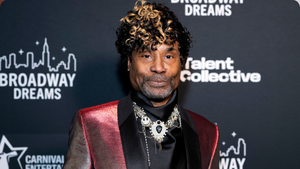Wealthy nations
must make Africa their top poverty-fighting priority,
World Bank president Paul Wolfowitz said Tuesday in
Singapore, urging wealthy countries to follow through
on promised aid.
"The
international community is at risk of falling short on its
commitments to increase aid to Africa," Wolfowitz told
delegates attending the annual meeting of the bank and
its sister institution, the International Monetary
Fund. Africa is the one region that has been
"conspicuously left behind," Wolfowitz said. "I remain
convinced that Africa has to be our number 1 priority."
According to the
World Bank, 1 billion of the world's population live on
less than $1 a day, almost a third of them in sub-Saharan
Africa.
Wolfowitz said
that international aid donors should move quickly to
support African countries that have recently emerged from
crises, such as Sierra Leone, Liberia, the Democratic
Republic of the Congo, and Central African Republic.
The number of countries in conflict in Africa has
fallen to five from 13 in the past three years, he noted.
"Their leaders
need to move swiftly to improve the lives of their
citizens and stabilize a fragile peace," Wolfowitz said.
"We, the international development community, must
move more swiftly to support them."
Countries
emerging from conflict need special help as well as debt
relief, said John Benjamin, finance minister of war-ravaged
Sierra Leone, where one out of three children dies
before the age of 5, the world's deadliest ratio. "For
11 years we have seen destruction," Benjamin
said. "For a country coming out of conflicts, we need a
lot of support."
Wolfowitz said
that key priorities include boosting aid for education
that could help 70 million children go to school and funding
programs needed to reach the 80% of Africans infected
with HIV/AIDS who still lack access to treatment. "To
do that takes resources," he said.
African delegates
urged both the IMF and World Bank to adapt their
policies to the myriad realities of their countries, some of
which are experiencing oil export booms while others
are mired in civil chaos.
"There are
countries [in Africa] which are cash-strapped, and they
are rationed out of the international market," said Charles
Soludo, governor of Nigeria's central bank. Aid from
the World Bank "is not expanding as much as it
should," he added.
At the same time,
the bank, whose mission is to alleviate poverty and
promote development, said it must also attend to the needs
of the two thirds of the world's poor living in Asia,
Latin America, and the Middle East.
Both the IMF and
World Bank, founded in 1945, face pressure to adapt
their policies and structures to reflect the growing
influence of developing nations in the world economy.
On Monday, the
184-nation IMF approved reforms increasing the voting
shares of China, South Korea, Turkey, and Mexico to reflect
their growing stature in the global economy. In a
second phase, the IMF plans to rework the voting
rights of all member countries within two years.
The poor
countries that are the institutions' main clients want a
greater say, said Abdoulaye Diop, Senegal's economy
minister. "We feel we have a duty to say what we need
to say and to be a part of the decision making," Diop
said.
During the
meeting the World Bank agreed to require that its 24-member
executive board have oversight over the bank's
anticorruption strategy.
Wolfowitz has
blocked more than $1 billion for projects in Africa and
Asia because of allegations of corruption, drawing criticism
from both donor and recipient countries that say such
decisions penalize poor people for the abuses of their
governments. (Elaine Kurtenbach/AP)




































































Charlie Kirk DID say stoning gay people was the 'perfect law' — and these other heinous quotes